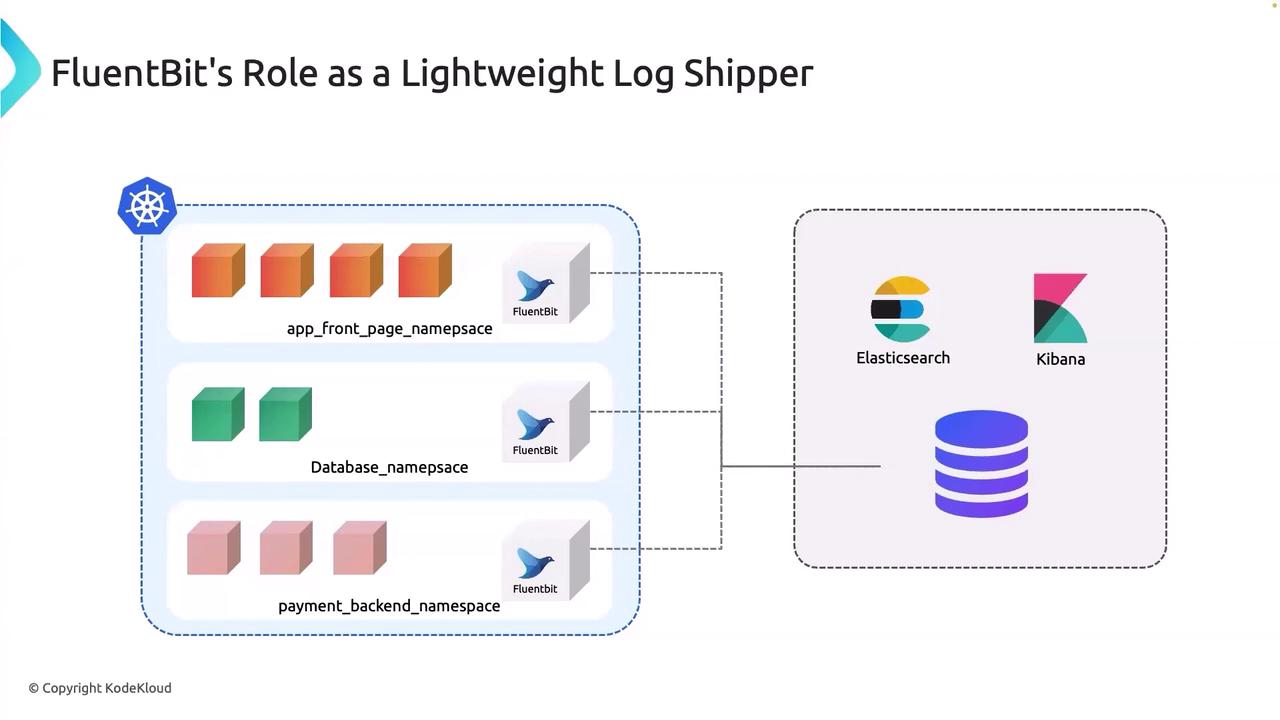EFK Stack: Enterprise-Grade Logging and Monitoring
Fluent Bit
Fluent Bits Role as a Lightweight Log Shipper
Welcome to our detailed guide on Fluent Bit. In our previous article, we discussed the key differences between Fluentd and Fluent Bit. In this article, we focus on Fluent Bit as a lightweight log shipper—a critical tool for real-time log management in modern containerized environments, including Kubernetes.
Architecture Overview
This end-to-end architecture demonstrates how Fluent Bit integrates within a Kubernetes ecosystem to collect and forward logs:
- Kubernetes Cluster: Forms the backbone of the system.
- Elasticsearch & Kibana: Operate within the Kubernetes environment or on Elastic Cloud to process and visualize logs.
- Dedicated Namespace for Front-End Application: Fluent Bit runs here, meticulously collecting all logs generated by the pods in this namespace.
- Additional Namespaces: Contain a database and a payment backend, managed independently—illustrating a microservices architecture where different teams oversee their respective services.
Fluent Bit continuously collects logs from all microservices and forwards them directly to Elasticsearch for further processing, enabling efficient and centralized log management.

Note
While alternatives like Fluentd or Logstash are available, Fluent Bit is often preferred for its lightweight footprint, efficient performance, and lower resource consumption. It offers comparable functionalities for log collection, filtering, and forwarding.
Key Functions of Fluent Bit
Fluent Bit's functionality is centered around three core processes:
- Collecting Logs: Capturing logs from various sources within the Kubernetes environment.
- Filtering Logs: Processing and refining log data to ensure consistency and relevance.
- Forwarding Logs: Transmitting the processed logs to Elasticsearch (output function) for storage and analysis.
Each of these functionalities plays an essential role in maintaining an effective logging and monitoring system.
Warning
Ensure that Fluent Bit is properly configured for your specific environment. Incorrect configurations may lead to incomplete log collection or performance issues in production.
Stay tuned for our upcoming articles, where we will dive deeper into each function and demonstrate how to configure Fluent Bit for optimal log aggregation in your application environments.
Happy logging!
Watch Video
Watch video content